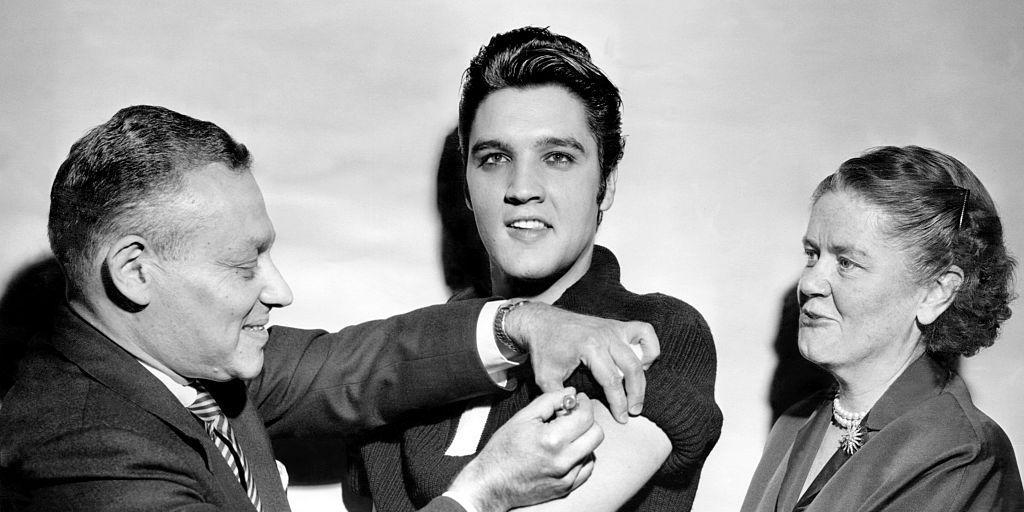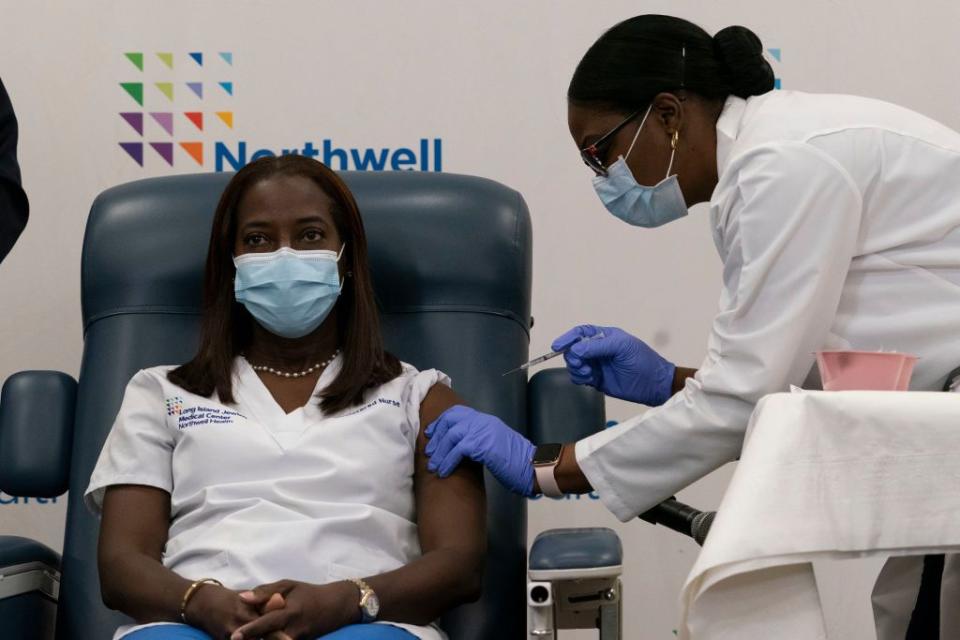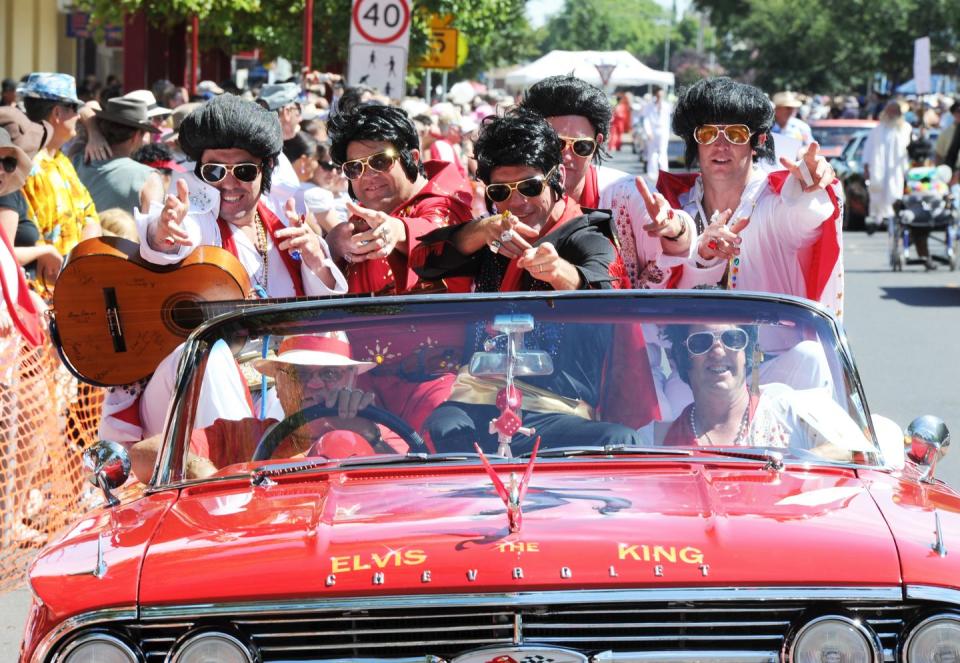Elvis Presley and the Role Celebrities Can Play in Convincing People to Get Vaccines

- Oops!Something went wrong.Please try again later.
On Monday, December 14, Sandra Lindsay, a 52-year-old nurse from New York City, became the first American to receive the newly approved vaccine for the coronavirus. She was surrounded by camera crews and beaming colleagues when she got the shot in her left shoulder. Afterwards, she told the New York Times that, as a Black woman, she hoped “to inspire people who look like me, who are skeptical in general about taking vaccines.”
Since then, numerous frontline workers as well as individuals at high risk for infection have posted photographs of themselves getting the vaccine. The 81-year-old actor Ian McKellen shared his jab on his Instagram feed. Vice President Mike Pence had his done on live television.

The vaccine shot/photo op has a long and fruitful history, and one of the most successful examples was Elvis Presley’s polio inoculation, which was administered in 1956 on the set of the Ed Sullivan Show moments before Presley went on stage to perform. There was considerable public distrust of the new vaccine at the time (the columnist Walter Winchell famously announced on his radio show, “It may be a killer”), and Presley’s public endorsement was said to have led to dramatic increase in its acceptance, particularly among young people.
'I really hope that, as more people get vaccinated, we will move further along the path back to a more normal way of life.'
⁰Sir @IanMcKellen joins the thousands of people who have now safely received the first dose of the #CovidVaccine. https://t.co/1e3nCAUFcB pic.twitter.com/FFW6jrKqEg— NHS England and NHS Improvement (@NHSEngland) December 16, 2020
Over the years, the public health publicity shot has morphed into news segment, first person essay, and social media post. And while Presley’s vaccination was organized by the New York City Department of Health, many recent PSAs have been personal pleas from individuals.
In 2000, Katie Couric was filmed preparing for and receiving a colonoscopy for a Today Show segment to raise awareness for colon cancer prevention. Her husband, Jay Monahan, died of the disease two years earlier. That episode, and Couric’s continuing advocacy, were hugely successful in destigmatizing the procedure. Eighteen years later, it was no big deal when Jimmy Kimmel invited Couric to record his own colonoscopy.
On World AIDS Day in 2016, Prince Harry and Rihanna received HIV tests in Barbados on live television to show how easy it is to be tested. In 2019, the actor Marcia Cross appeared on CNN to discuss her treatment for anal cancer and to voice her support for HPV vaccination.
Some endorsements by celebrities have had unintended consequences. In 2013, Angelina Jolie wrote an op-ed in the New York Times describing her decision to have a double mastectomy after learning she carries the BRCA1 gene, which increases risk of breast cancer. In 2016, Ben Stiller wrote an essay published in Medium titled, The Prostate Cancer Test That Saved My Life, detailing how a routine PSA screening had detected an early case of the disease.
In both instances, their first-person accounts brought much-needed attention to life-saving tests. But, according to some physicians, it also brought an influx of requests from people who didn’t need to be tested. The authors of a study of the effects of the Jolie op-ed, published in the British Medical Journal, found that testing increased 64 percent after the piece ran but that the increase numbers didn't necessarily include those most at danger. “Celebrity endorsements can have a large and immediate effect on use of health services," they wrote. "Such announcements can be a low cost means of reaching a broad audience quickly, but they may not effectively target the subpopulations that are most at risk for the relevant underlying condition.”
In a recent poll conducted by Gallup, 64 percent of those surveyed said they would be willing to receive a coronavirus vaccine. That number was up from a previous survey but is nowhere near what health experts say is necessary for optimal results. To encourage others to get the vaccine and to demonstrate his faith in its safety, Dr. Anthony Fauci, White House advisor and director of the National Institute of Allergy and Infectious Diseases, announced that he would receive the vaccine in front of cameras sometime next week. Former Presidents Barack Obama, Bill Clinton, and George W. Bush each offered to receive their shots publicly when their turn comes. Ivanka Trump has similarly offered up her own shoulder.
But in these divided times—when scientific recommendations have somehow become political hot potatoes—it may take more than just experts, politicians, and celebrities to convince everyone to get a shot. For that, we may need a return performance.

You Might Also Like

